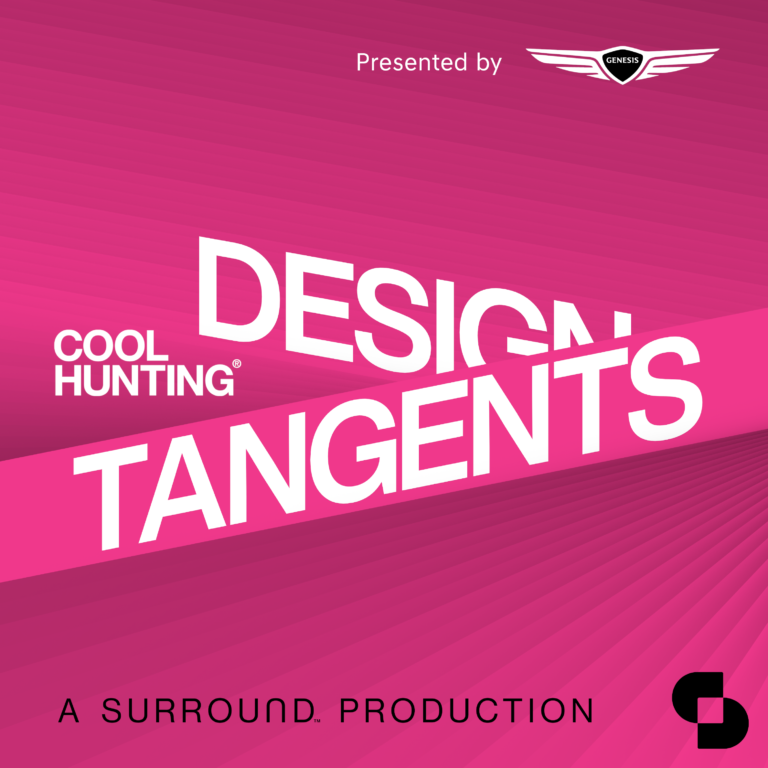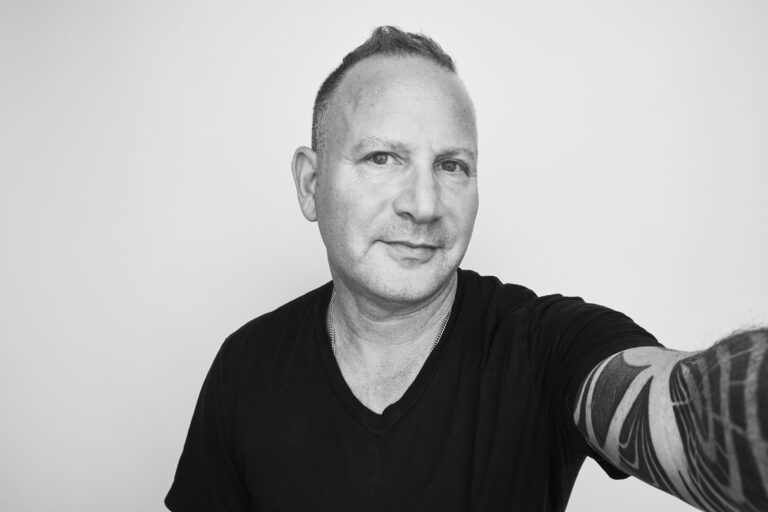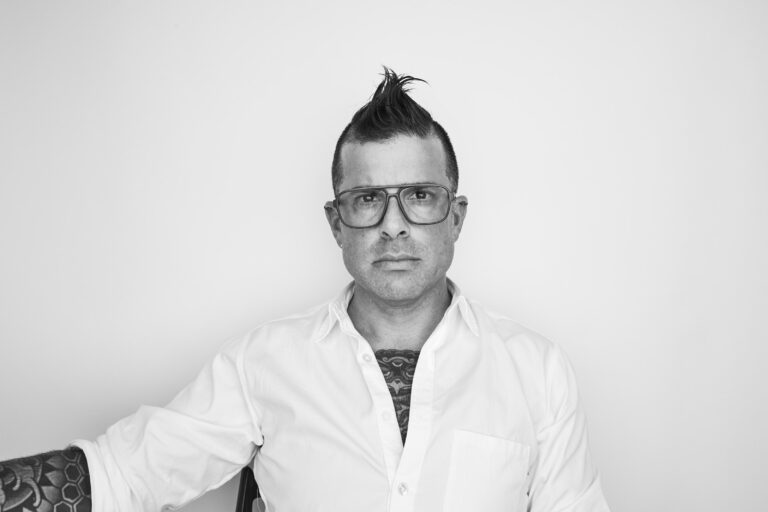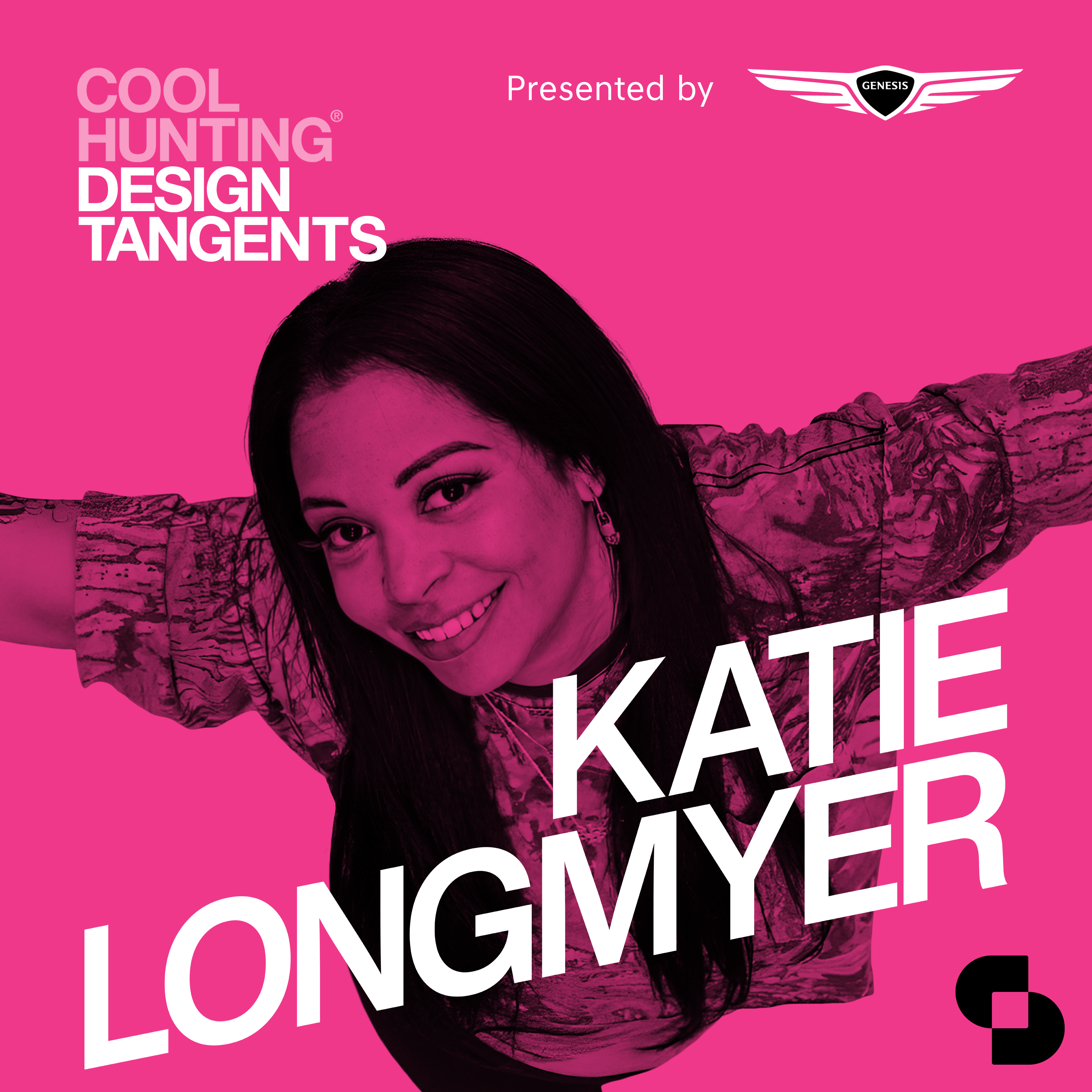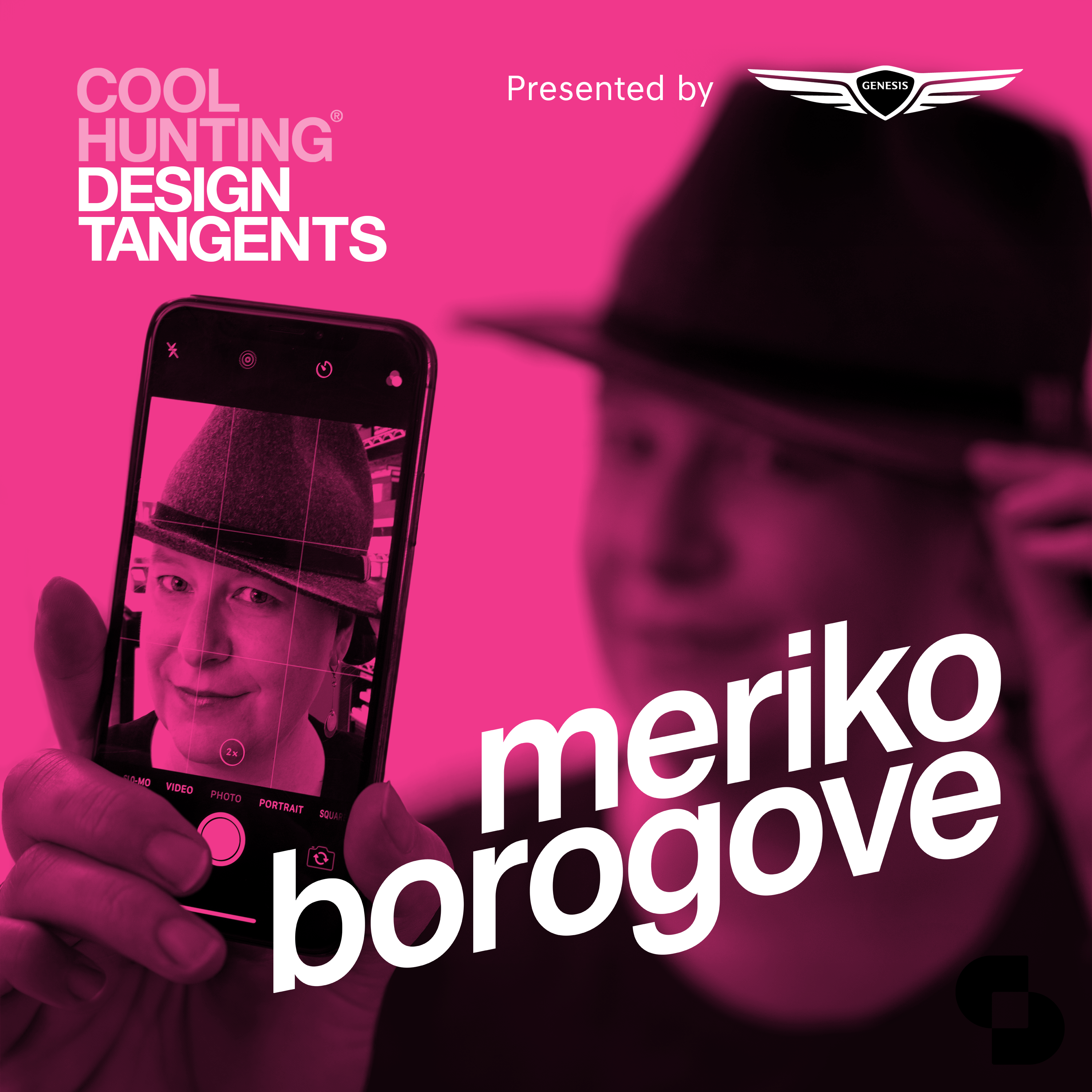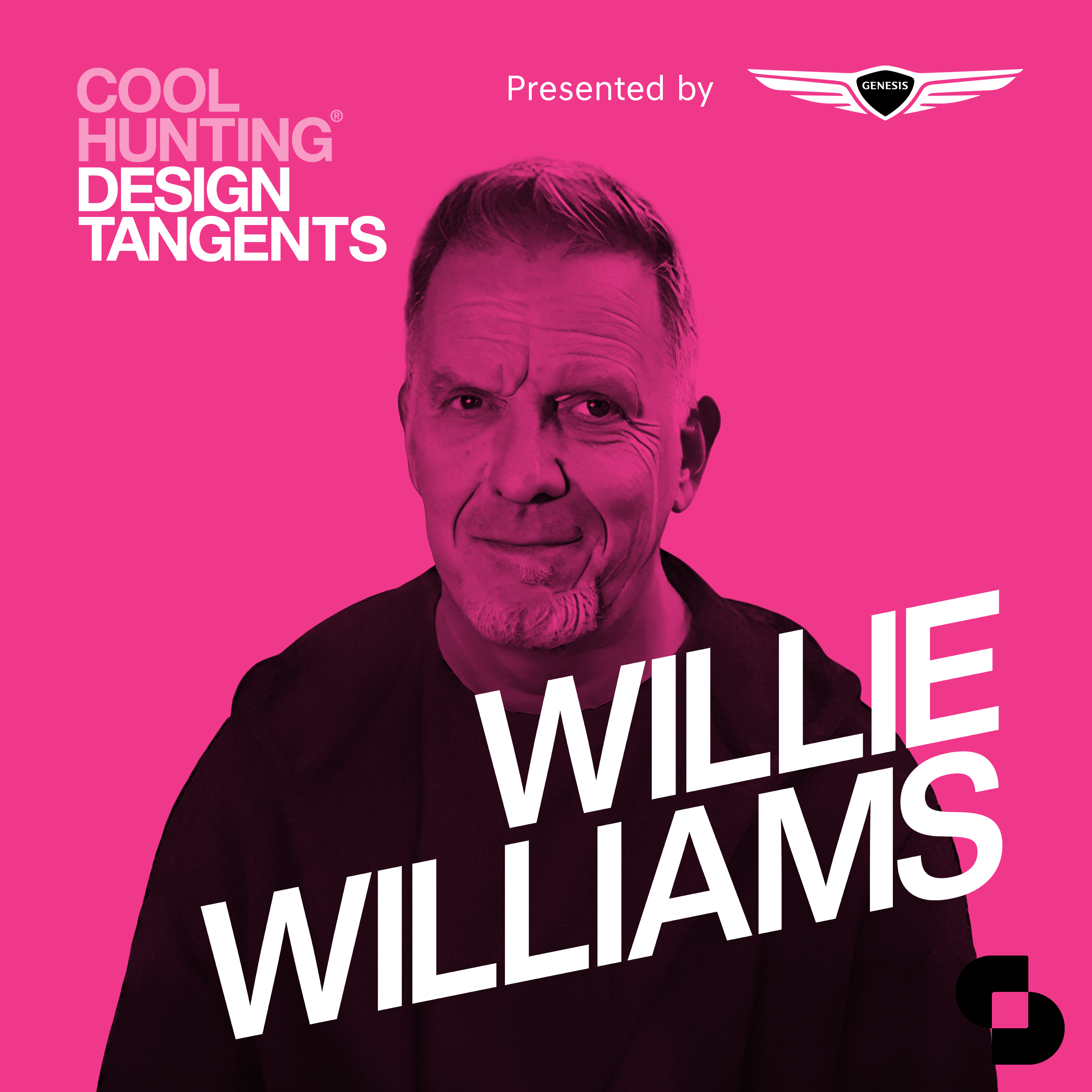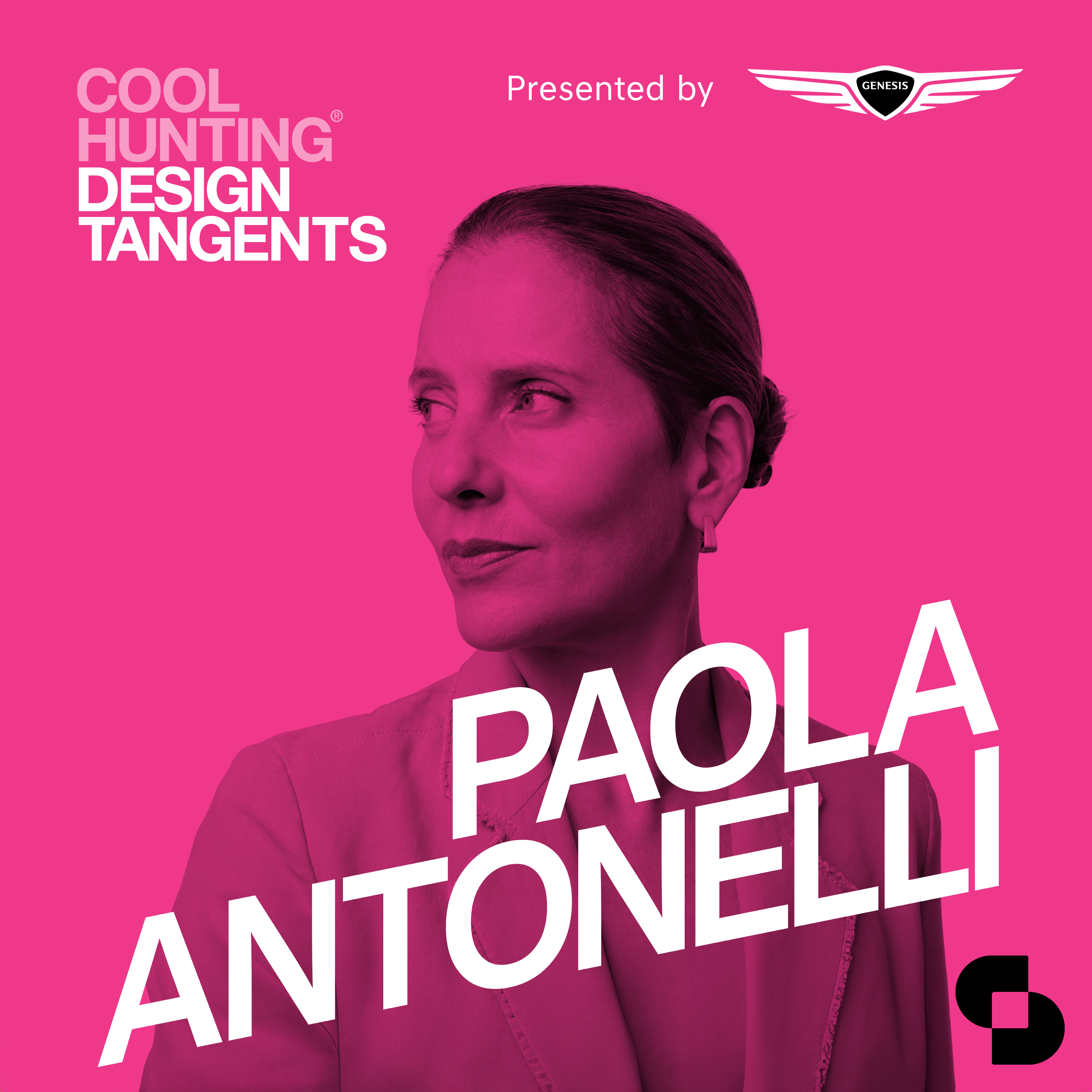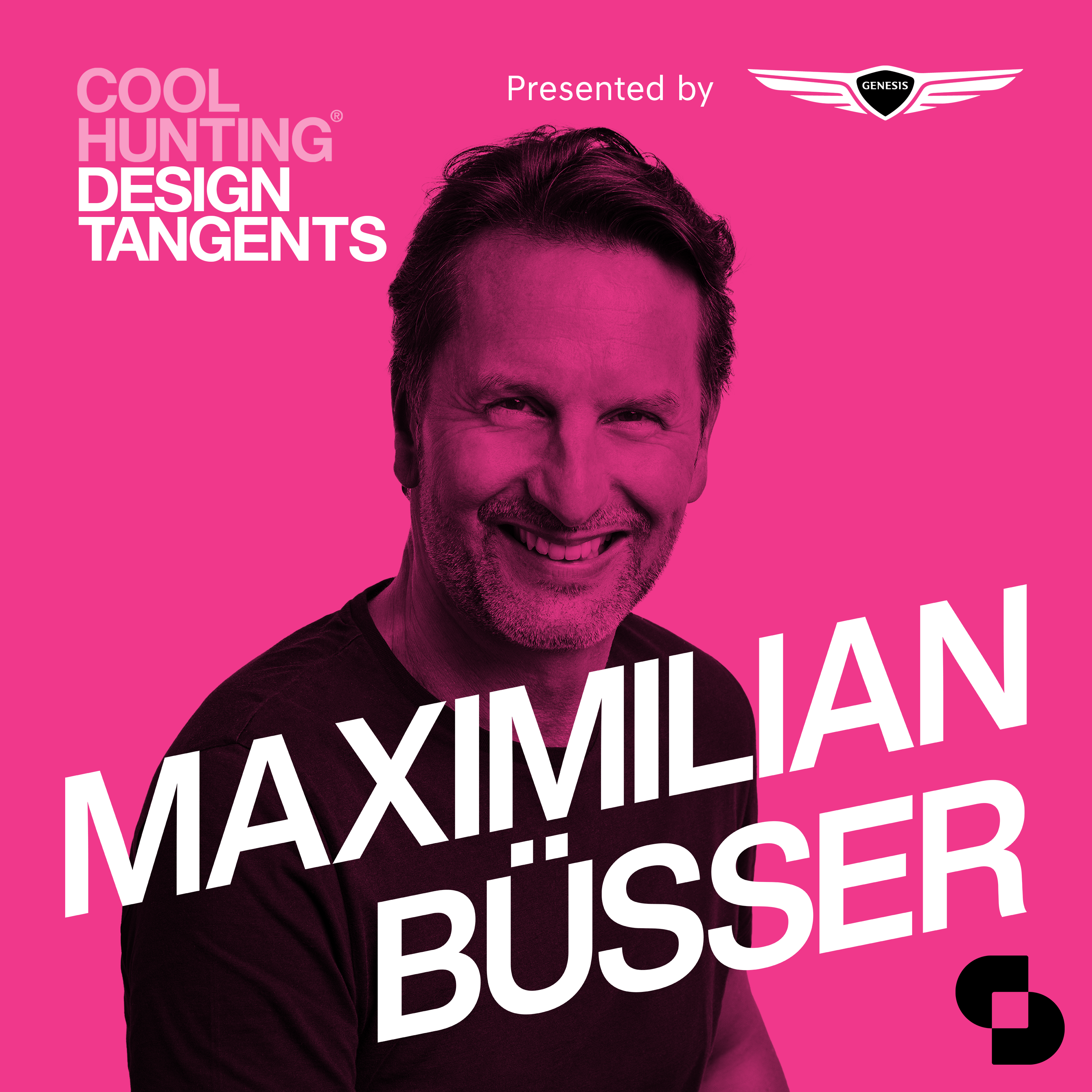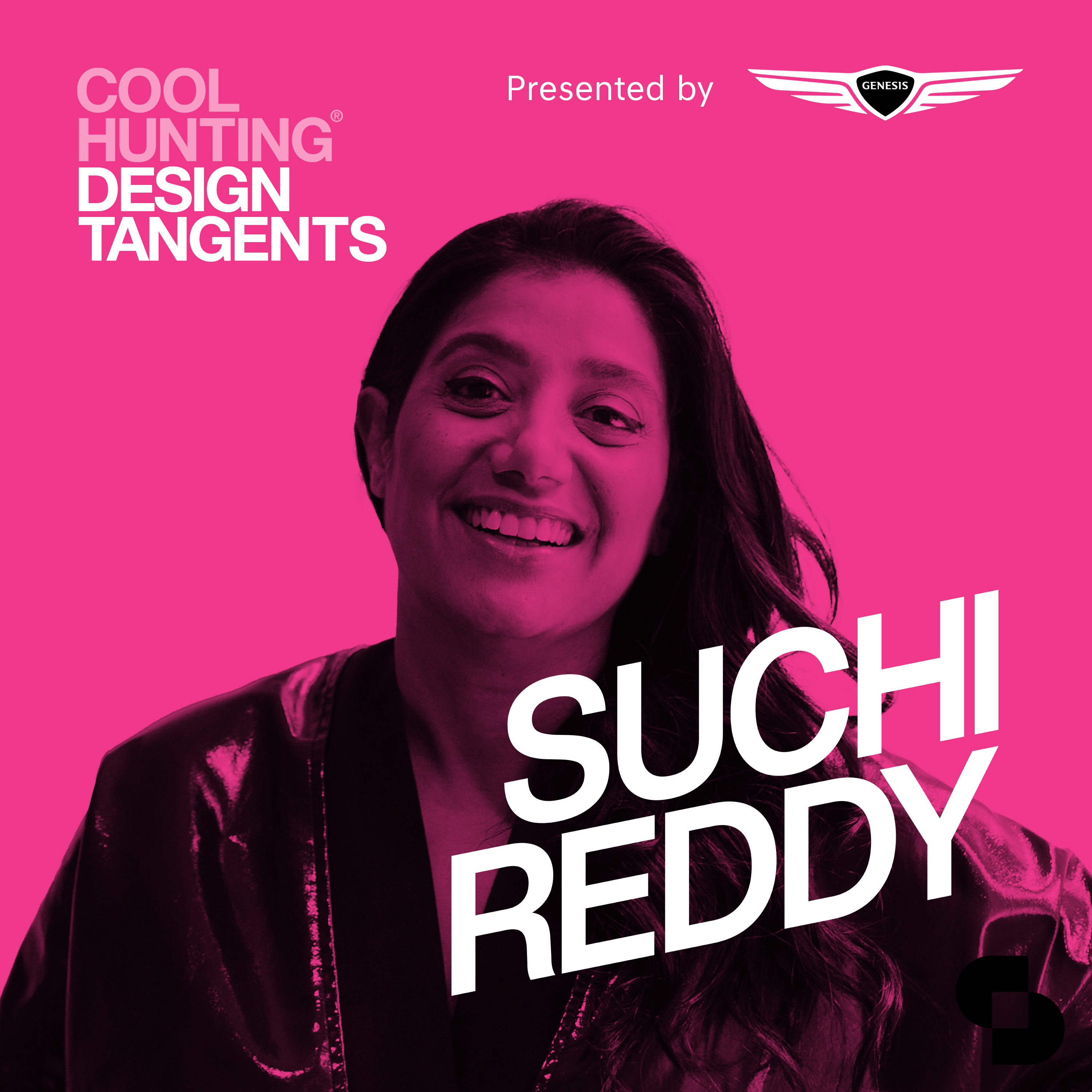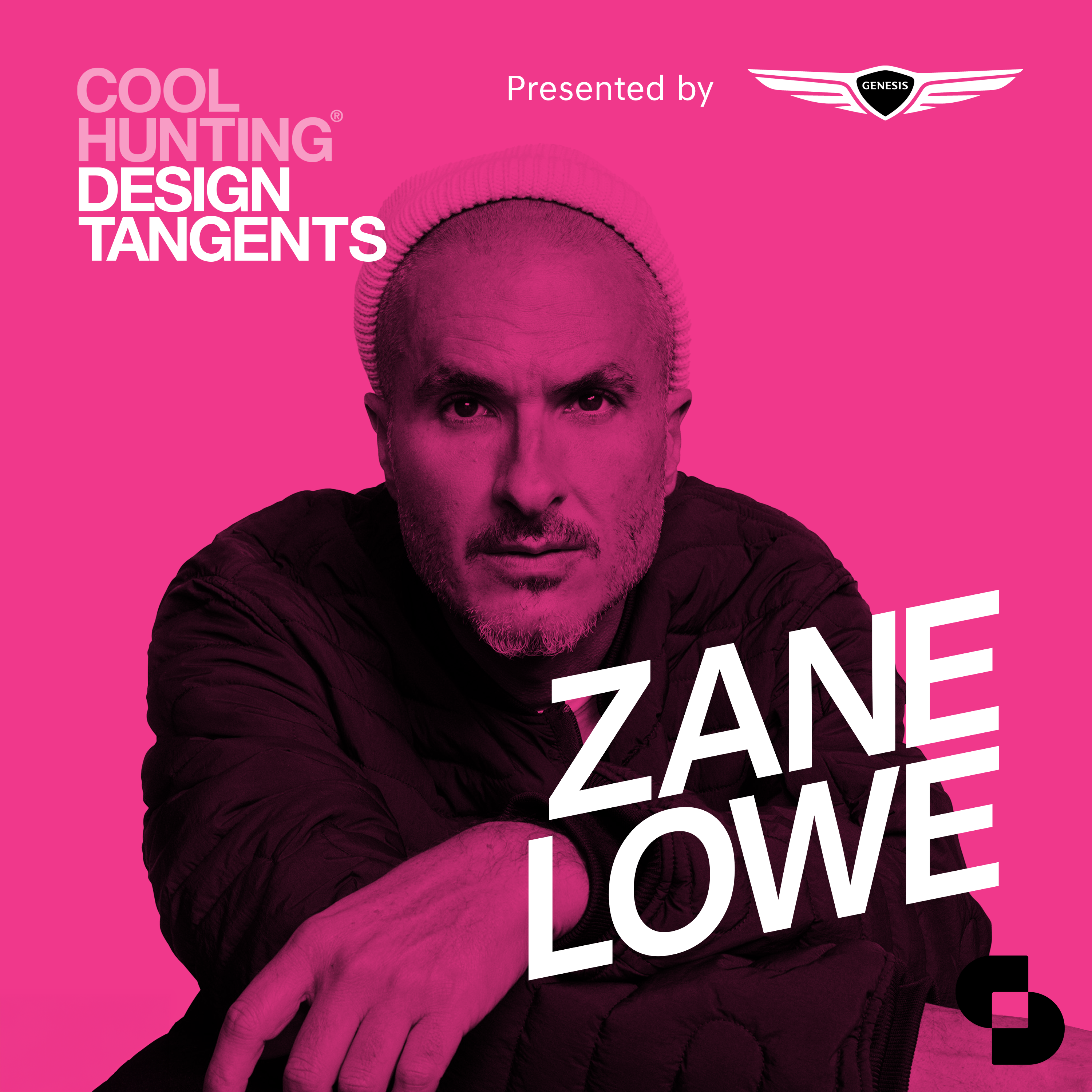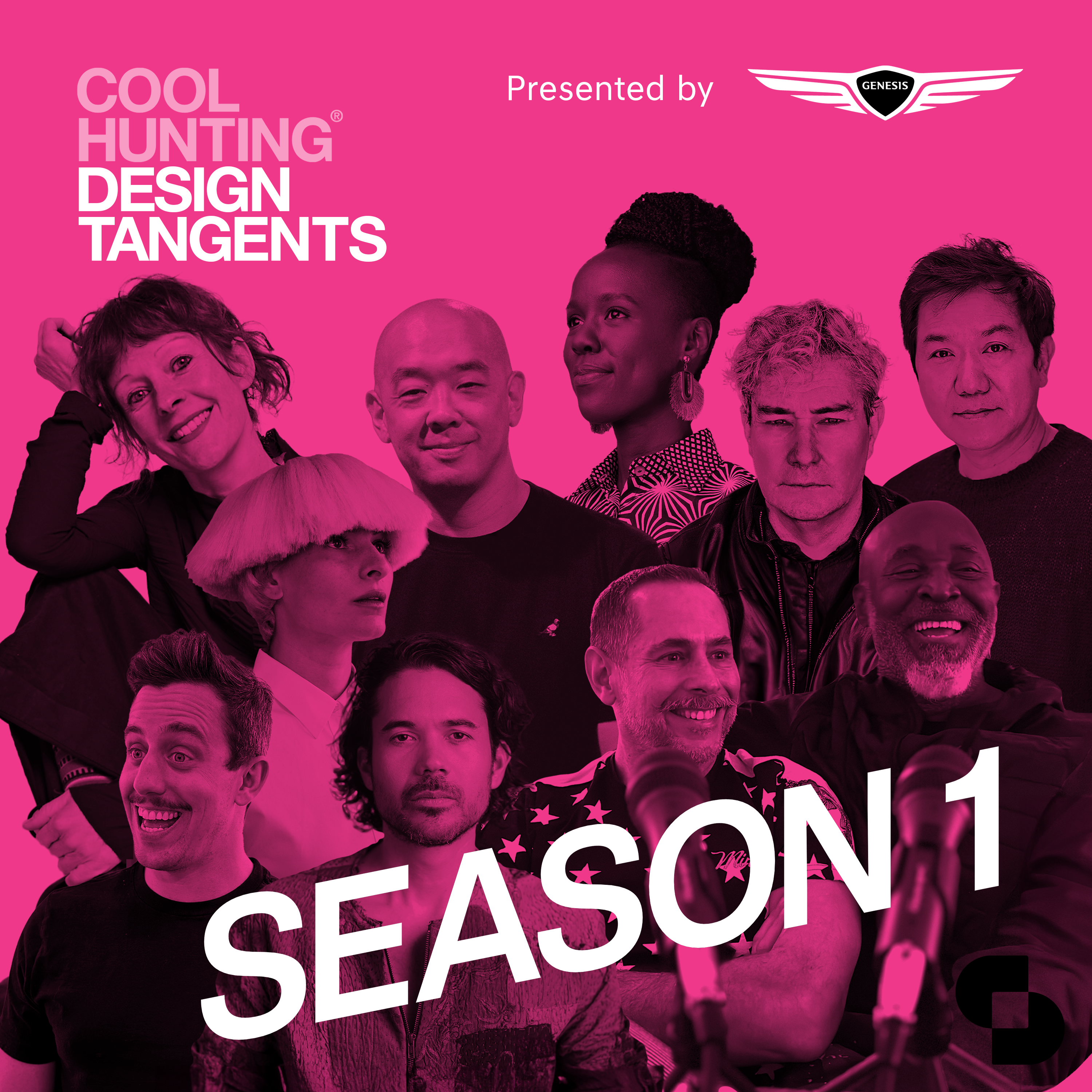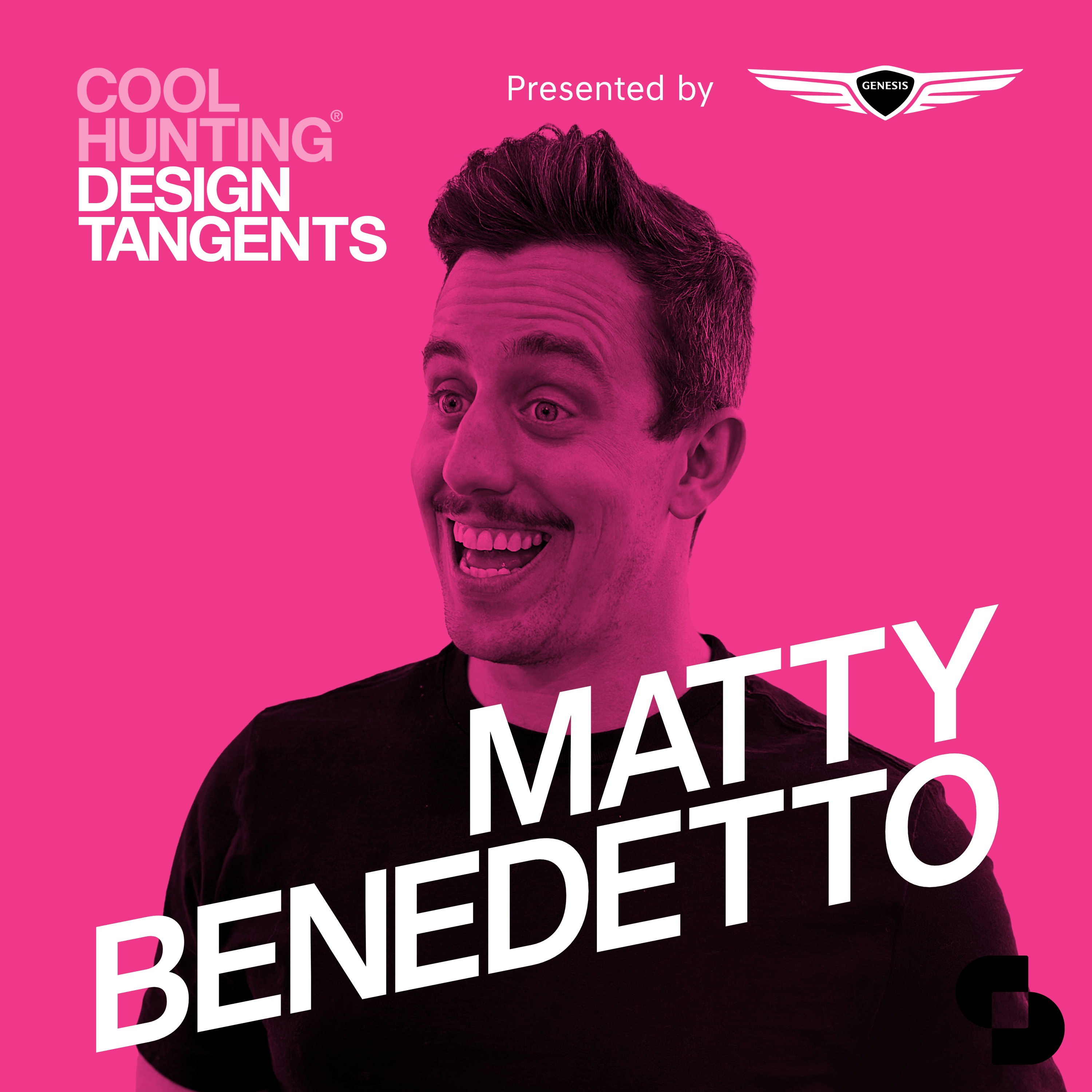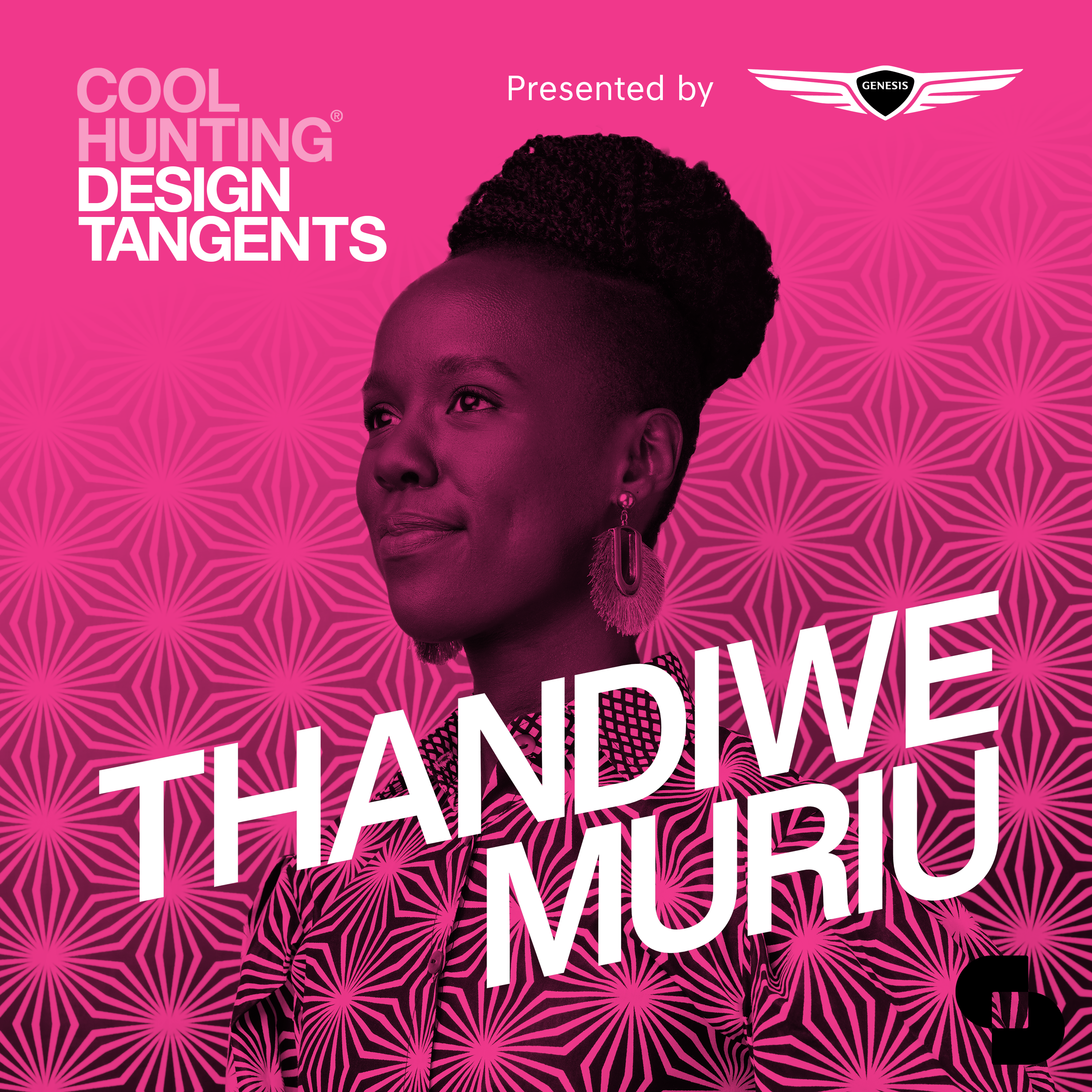Jonathan dreamed about being a potter but was thwarted by the advice of others, so after university he started working at a talent agency in NYC, and threw pottery on the side. It didn’t take long for him to listen to his heart and pursue his true calling. Thirty one years later he’s achieved superstar status as a multi-faceted creator and designer with a retail empire and a creative studio that celebrates his unique point of view on living with glamour and style. In this episode Josh and Evan talk to Jonathan about building his eponymous lifestyle brand, the power of yes, flexing vocabulary and keeping it carny.
Discover more shows from SURROUND at surroundpodcasts.com.
This episode was produced by Rob Schulte.
Design Tangents is presented by Genesis.
This transcript was generated by an automated service. In some cases it may be incomplete or inaccurate due to inaudible passages or transcription errors
Jonathan: [00:00:00] He should have just been like, yes, what a great opportunity. I can actually make money and make something and maybe I don’t get to put my name on it, but it’s like an opportunity and probably something fabulous would have come from it. I have always been that type of person. I say yes to everything.
Josh: Welcome to design tangents, a podcast from cool hunting, exploring the creative processes and inspirations that drive change makers. I’m Josh Rubin.
Evan: I’m Evan Orensten.
Josh: So, Evan, when you hear the words irreverent, fantastical, bold, vibrant,
pop, retro, what kind of images come to mind?
Evan: You’ve seen my Instagram feed, Josh, so
Josh: And when you think of a designer who embodies that aesthetic, who comes to mind?
Evan: There’s only one person, and that Is Jonathan Adler
Josh: having been in and around the design industry for so many years. We know a lot of people and a lot of them we know from our days before cool hunting when we were deep in web one really focused on digital design and You know, we have some friends from before those times as well,
Evan: and there are people who really transcend space and time, Josh, I met Jonathan shortly after we were both in college.
He actually was a roommate with one of my very good friends in New York City, and he was. In those days, working at a talent agency, and that’s with actors, not companions, wink wink. Nod nod. Could have gone either way. And he would throw clay at, you know, nights and weekends. It was always a passion, but he hadn’t quite figured it out yet.
We’ve been friends ever since then and much like his work Jonathan is just one of those bold enigmas who says what’s on his mind and he follows his heart Of course, I love him because he’s a yes [00:02:00] person like I am wait here. You’re a yes person. I’m a yes person Really? I’m working on the no No,
Jonathan: yeah For better
Josh: or worse, Jonathan comes from an intellectual family background and loves to flex his linguistic prowess.
Warning, never ever play Scrabble or words with friends with him. And, and by the way, if you are unfamiliar with the word catamite, now might be a good time to look it up. Unfortunately, you’ll
Jonathan: understand later.
How are you
Evan: splitting your time these days?
Jonathan: Um, how am I splitting my time? Um, oldly, I’m, uh, half the time in Florida and half the time on Shelter Island. At a certain age, Nancy nature comes a callin and you kinda wanna just be in nature more. I
Evan: feel like it happened to you. A long time ago, though, like 20 years ago.
Jonathan: No, well, I’m, I’m a country mouse by birth. Uh, I grew up in like teensy weensy farm town. Like if you, in the past, if you had seen my life from, um, above, you would have, I sort of was living like the, uh, Carrie Bradshaw dream, you know, glamorous apartment design office in Soho, the whole thing. Um, but the reality was kind of anything, but it’s like.
You know, I walk out the door and there’s like, you know, marijuana smoke wafting from the construction site, um, terrifyingly and jackhammering and, um. Influencers, uh, being photographed by their husbands, um, in front of the marijuana smoke. Yeah. In front of bouvet while like, you know, apocalyptic drug addicts are like wandering next to them, but you would never see it.
Um, in the. Influencer snap. So, you know, [00:04:00] that was kind of what was happening in New York City and it’s a delight to visit. I don’t, you know, my dissatisfaction with the city. It was a lot when I was living there. Now I love to go back, which I do all the time because my office pottery studio, the whole shebang is there.
So I’m there all the time. Do you
Evan: have pottery studios or at least places where you are able to do that outside of the city?
Jonathan: No, I used to have a studio at my place on Shelter Island and it sort of felt like a busman’s holiday because like, you know, I think if people think about my ceramic practice, which of course they should, they imagine that, you know, it’s something I really, that I love.
And of course I do. But, uh, the truth is that I’ve spent my pretty years from like, you know, 27 to about 36 as a full time production potter, like covered in clay, 12 hours a day, seven days a week. And I kind of got burnt out. I definitely reached the old Malcolm Gladwell 10, 000 hours. Moment where I like, you know, if I can see it, then I can be it as our Kelly would say, like, if I can see a pot, I can make that pot, but I don’t I don’t see it as sort of like a restful or relaxing practice.
I see it as sort of a means to an end. So at this point pop like so much of my. work does start in my pottery studio, but I see pottery as sort of a means to an end rather than a meditative pursuit. Let’s just step back for one second, given
Josh: that,
Jonathan: how would you describe
Josh: what you do? Like if you met someone today and you’re like,
Jonathan: hi, I’m Jonathan and I, well, I, it’s a good question.
I struggle. There’s like two poles, both of which are disingenuous. I can either be faux humble and say, I’m a [00:06:00] potter. Um, Or I can be, um, so grandiose and say, I preside over an eponymous design empire. Um, the truth is really neither. I would say that I have a craft based design practice that is always informed by.
My commitment to craft, a. k. a. my, my understanding of how things are made and my appreciation of materials, I have been able to kind of take that craft based practice, which started in clay and move it into like a squillion different materials, uh, and voices even and, and categories, uh, I’m, yeah, craft based design practice.
Lots of different materials, lots of different voices. And I think most importantly, I think the word that’s missing is insular. I think I have a very insular craft based design practice. You know, we like, even though I have lots of projects and, you know, a certain profile in the design world, the reality is that it’s.
I try to stay very inwardly focused, not be too distracted. I have a team of design people who’ve worked with me for like 10 or 15 years in the design studio. All of them are kind of like creative outsiders. Like I kind of think of myself, so, you know, craft based design practice, but we, we keep it carny as well by being insular, um, oddballs, keep it
Josh: carny.
That’s, that’s what I was waiting for. Cause you, you, you know, like you said, voices multiple times. And I, you know, I think personality, like there’s so much personality in your work, in your aesthetic. Um, and there it is. Carny, you keep it
Jonathan: carny. It’s really true. Cause I, and I think, I think what [00:08:00]that reflects.
Uh, to some degree is that I began this enterprise as very much an outsider, even though I kind of had, you know, elite and elite pedigree having gone to, you know, like growing up solidly upper middle class and, you know, going to an elite university schools, bougie, bougie, bougie, but I had zero. Connection to the design world.
I had never worked in it. Uh, so when I started potting, I came very much as an outsider. Of course, at this point, I’ve, um, worked my way into being very much an insider, but, but I think at heart, I’m still a carny outsider. And I think that’s actually been really important for my design world because, um, I’m going to use a me.
An annoying controversial misapplied word and just say it’s my voice remains authentic, you
Evan: know, we have known each other. I’m kind of afraid to say it because it will make us seem really, really, really
Jonathan: old, but we met, we met around numbers don’t matter. You know, each other.
Evan: Okay. Um, so let’s just say we’ve known each other really long time, but I’ve never, you know, I’ve always, there’s so many things I’ve admired about you and one of them truly like, The person I met 30 some years ago, because I can’t quite add and subtract those numbers, it’s the same, right?
You are the same. You truly are your authentic self. Your platform has grown, but you aren’t really that different as a human than you were. And we’ve been friends for, you know, 30 years. You really have stayed true to, to who you are. just with a bigger voice.
Jonathan: The idea of like personality and sort of the constancy of personality I think is really hard to parse, especially when you’re talking about your own.
Uh, it’s a kind of slippery idea of [00:10:00] like the idea of who am I? But yeah, I think if I, if I Try to reflect on moi’s self. I have the exact same concerns. I think sort of the DNA of my voice, aesthetically, personality, everything ly has remained really the same. And, you know, for better or for worse.
Evan: You know some people are like i am going to do this and then from the earliest age they apply themselves to that i don’t remember you ever saying i’m going to build an empire yet you did and you have and
Jonathan: you are still well that’s very sweet i don’t feel like i am but that’s sweet i i absolutely never thought about that that was never a goal i’m gonna.
Seem so humble now, but my goal when I started was just have a platform, um, from which to express myself and and to not have to listen to any other people. I’m extraordinarily selfish and I don’t play well with others. And that was revealed to me when I tried to. Make it like as a normal human being with a job early on, uh, you know, which is when we met.
Yes, when we met, I was like attempting to be a miserable.
Evan: I can’t say that the word that I would use that I would use with you privately, but I won’t say here. Yes, but you are a miserable blank.
Jonathan: Um, sometimes, um, yeah, and my attempt to be a normie was like failed and aborted attempt to be a normie and, uh.
But when I tried to work in the movie business, which I did, I saw a world in which creativity was done by committee. And I realized that I was a little too selfish and a little too outside, like an out too much of an outsider to work well with others. And when I decided I didn’t really decide to become a potter when I started being a potter and just making pots, it was so great because I could just make what I want.
Could not have been lower. Like there’s [00:12:00] nothing lower stakes than making a mug. Like it doesn’t get like lower stakes. You know, you’re talking about like an 18 product that will never support you. You know, I just was like, I’m making a mug, whatever. Never thought about an empire and I’ve just been at it for a minute, bro.
So, you know, I think, I think my hate the word journey, but I’m going to say it, my journey, um, is probably instructive, uh, as for. Any young people who are listening today, because I think they’ve been like served a bill of goods, if that’s a cliche with the idea that you can just sort of like, like, ta da, make it happen, like bewitched.
Um, the reality is those young people don’t know bewitched as a reference. I know I’m saying, I know. Um, just trying to enter, trying to educate the youth because bewitched is. Pretty, pretty important, both aesthetically and culturally magical. Yeah, magical. And it featured Paul Linn, you know, a forever fade.
Um, you know, it’s a, it’s a long and winding road. And, um, in as much as I have an empire, it has snuck up on me by putting one foot in front of the other, applauding Lee, and most importantly saying yes to. Any and every opportunity that comes my way. I’ll tell an anecdote. That’s kind of interesting. I think about 10 years ago.
Um, I was at some trade show and I saw some woodworker who made like these, like, really cool things. And at the, at that time I was. Looking for something like I wanted to make something in this particular material and technique and I went up to the guy who was like a young struggling dude and I was like, Hey, do you want to like collaborate?
Like, would you ever do private label? Uh, you know, where you make it? I design it. We sell it. Um, and he said, not interested. I’m really focusing on building my brand. And of course [00:14:00] his brand never to be heard from again. Uh, the point being, He should have just been like, yes, what a great opportunity I can actually make money and make something and maybe I don’t get to put my name on it, but it’s like an opportunity.
And as it turns out, probably something fabulous would have come from it. I have always been that type of person. I say yes to everything and recognize that it will probably. Any of my yeses will probably lead to unexpected opportunities, uh, so I think, I think, you know, I’ve always been willing to compromise in some ways.
I don’t know, I guess I’m just having an anti young person screed. Just say yes to everything would be my advice to the, to the youth. I’m really excited for this
Josh: setup right here. Yeah, I’m gonna beat Evan to this one or try to beat Evan to
Jonathan: this one. Josh is the no voice. He is the worst. That’s because he’s the young one.
I am the no, Evan is the
Josh: yes. And I mean, I’ve been learning to say yes. I’ve been saying yes more and Evan’s been learning to say no
Jonathan: sometimes. To the audience who can’t see, you should just know that Evan is much older and Josh is basically just his catamite.
Evan: This may be the first time I’ve seen Rob, our producer, almost fall off his chair.
Jonathan: And for those young people who don’t know what academite is, it’s very unsavory, but Evan and Josh are unsavory. And here we are, Josh. Yeah. Yep. Yeah.
Josh: I think this is a great time to throw to a break.
Jonathan: We’ll be right back.
Evan: The power of yes. I think is really interesting. Cool hunting was celebrating his 20th anniversary. We spent all this time during the pandemic talking about how we’re going to celebrate 20 years and we’re going to this great installation and we’re going to talk about the past. And eventually I was like, no one gives a shit about the past.
Like if we do anything, we have to [00:16:00] acknowledge the past. It informs us. It’s part of who we are. It’s helped shape us, but it’s really about how do we take what we’ve learned and move it forward and think about the future, right? So acknowledging the past is important, celebrating it to me. Not important. Um, and you certainly haven’t done that.
But I do remember I don’t want to name them for you. But from my point of view, I think there were a couple kind of key moments that kind of opened up a new door or a new gate for you. And the first one is you were, as you said, toiling away. You’re working a day job. You were throwing pots at nights and weekends.
You finally had this opportunity to sell some mugs that were more than 18 if I remember correctly to Barney’s when Barney was in its heyday and that was a really big, you know, cataclysmic shift in your life, right? That was one opportunity that started to open other doors. Totally and I’m wondering if there are others that you would remember as being as big of a moment is that for you
Jonathan: first all about the past.
I think Hillary Duff said it best. Um, the past is so yesterday. It really isn’t. Nobody gives a fuck. Like, I try to be super future looking. I. I’m happy to talk about my past. It does give people some context. I’m going to say it. I’m going to talk about it super quickly. Yes. Selling a pot to Barneys was epically mega.
Uh, and in a way that I think is interesting because At that time, there were real gatekeepers to commerce, you know, there was no interweb. You couldn’t just sort of like put something up and sell it. So once I broke through that gate, it suddenly, I had a Platform and people could engage with my work, um, sort of like the way back in the day there used to be like 3 [00:18:00] networks and all in the family would get, you know, half of America will be watching and now there are a billion networks and, you know, a successful show has like.
12 people watching. I would say that same kind of paradigm applied to my gatekeeper experience. Yes. Getting into Barney’s was a huge moment because it kind of put me on the map. Other moments definitely include then meeting and marrying Barney’s creative director, Simon Doonan. We’ve built an incredible life together.
Opening my first store. Was another huge moment, probably this is going to get super Opry, but, uh, another huge moment was the rendering to the idea that I didn’t have to make everything myself and that I could find other people to make stuff and sort of not having to be a total control freak and kind of discovering that I’m really good at delegating, but most importantly, it’s just been a very, very long career.
I’m super. Lucky to have been in business for 30 years, you know, over a lot of, a lot of stuff happens over 30 years that has gotten me to this place. And by the way, a lot of those things, you know, looking like in discussing the past, I’m going to, it’s going to seem like all, um. Unicorns and rainbows, but my God, have I been through some stuff like I’m a haggard professional who is really had to deal with like a lot.
It has not been easy. It’s a very challenging road. And if I could do it all over again, um. I’m thrilled with where I am, but it’s been, it’s been a lot of like work, mud, like it’s like the pottery studio I started at was called mud, sweat and tears. And I would say that captures the last 30 years of my life, mud, sweat and tears.
Evan: I have three things. One, I want to add one moment from the outside, at least, and that was the Parker Hotel in Palm Springs. That to me was a moment because people got to see not just [00:20:00] objects that you have created, but an environment in a, in a very public way, right? You’ve done some private things, but this was a very public outing of Jonathan full on.
This is like Mr. Adler presents how to live and this glamorous resort and Palm Springs of an era that had been refreshed to. Show the world really what your perspective on living and resorting and Palm Springing could be right that
Jonathan: was a big moment that is so true. Actually, I I’m glad you mentioned that one because it really was a big moment.
It’s almost 20 years ago. My God, I hadn’t really done much interior design. I do say yes to everything. So, um. When I had done interior design, because a friend of mine was like, will you do my house? And I was like, yes, and I was lucky enough to be called by the owner who has become a true friend collaborator.
I’ve done a couple of houses for him since, um, and that’s not to say he wasn’t absolutely impossible when we were giving birth to that project, but it was, I collaborated with him. He was incredible and I’m super proud of that environment. And it’s, you know, I think that it. Okay. It is in some ways a true reflection of moi, again, authenticity.
I think that you would, if you stay there, you would never get corporate vibrations. Like it couldn’t be less corporate. It is super personal, eccentric. And in as much as it has resonated with people, I think it’s because it is, it’s not, I hope it’s chic, but I hope it’s also much more than chic. I hope it’s like, uh, chic, but.
Intensely communicative, um, multi has a vibe. Yeah, it has a vibe, but it’s also like it’s layered. It was lovingly done. It’s really fucking weird. Like that Mr. Parker’s [00:22:00] restaurant is like a total freak show. Um, and it’s really weird and I’m thrilled to have, um, authored that.
Evan: There’s two other things and one I really hadn’t thought about, but you did start working when there wasn’t this.
World, uh, this ecosystem of social media and self promotion and all that, and I really never thought about it, but you’re, you’re so right when you talk about like gatekeepers to success or entry or debuting, and it was a clicky crazy world in New York where whether you’re trying to get into fashion or interiors or architecture, whatever it might have been that you were interested in, there were gatekeepers and you had to have that access and that permission to enter.
Which you do not have to have today. So you look around us we see so many people who’ve started successful businesses and careers Just by putting themselves out there on social media like that was not available
Jonathan: to us at all Not at all and it’s funny a couple things about that one It was a cliquey world and I was not a part of it I didn’t know anybody in the designer fashion world at all Uh, and in a funny way, it’s because my stupid elite education uh was one in which After I graduated, it would have been inconceivable to go into designer fashion.
I didn’t know a single person who did that. It was sort of like, it wasn’t done. I know that sounds strange given the fact that it’s the only thing that’s done now, the leader, the design year, but it just wasn’t done. So I was. I had no access to the clique and I just happened to luck out. Um, but yeah, now
Evan: you did have support though, right?
Your, your parents were supportive of your eccentric desire to not go mainstream, so to speak, right? They didn’t shun you because you wanted to discover the, you know, a creative profession.
Jonathan: I would say, no, they definitely didn’t shun me. I would say they were tolerant and, and, and just kind of weird. Like, it’s funny when I watched [00:24:00] the Brady bunch as a kid.
It was the only time I ever got any life lessons, which, of course, I didn’t take. I just mopped. They seemed so, like, banal. Um, but my parents were very eccentric themselves, and they never ever gave me or my brother or sister any advice or expectations. Um, and my brother and sister and I all became kind of weird, creative outsiders and insiders as well.
Like my sister like went to Yale and Yale law school and is a law professor now who’s just super intellectual and has a very Interesting idiosyncratic and eccentric take on the law that I think it would be probably the equivalent of my take on design. And similarly, my brother is like, um. You know, kind of brilliant and went to like Columbia and Oxford and is like an economist and financial journalist who has a real eccentric outsider’s take on global economics.
And I think part of that comes from the fact that we just grew up in this freaky farm town. Um, my parents were eccentric intellectuals and they never placed any expectations upon us and kind of just let us be, they probably should have been more practically oriented. Actually, if I were to like, you know, go to a shrink, I would probably be like, wait.
WTF? Why didn’t they ever give me any ideas? But it all worked out. They were tolerant. Back to gatekeepers. Yeah. It’s a very different time now. You can just go on social media. You have to create an image and a brand. By the way, let’s talk about the word brand for one second, not to jump around because I actually, I blame one Evan Orensten for everything that’s happened to our planet in a negative way.
Oh, Oh, Oh.
Evan: I was looking forward to this day, but [00:26:00] now maybe not. Yeah. Okay. Let’s hear it.
Jonathan: Katamite, Josh, and I have a lot of complaints about you. I’m sure. But here’s my complaint about you. So back in the day, things were simpler. No one thought about the idea of like a brand. Like I just made stuff. It was much more pleasant.
It was a less. Conniving and contrived era, uh, it was an era in which people were more free. Um, you know, I just was like making stuff. I had no plans for an empire. I really wasn’t annoying like young people are now with all their plans and their brands. And Evan, uh, who was working at like a, um. Internet company early on, like you said to me, like, Hey, do you want to come do like, like our corporate gift, which was very nice.
I was very flattered and appreciative because I was broke AF and the idea of like making a mug or whatever I was making for you by hand for your company. Corporate gift was really nice. And I went into your office and like presented it to you. Um, And this was like, before anybody said brand and you just said, like, you just kind of looked at it and you’re like, yep, on brand.
And I, at the time I thought, what the fuck? Like, on brand, like how annoying and corporate and Um, conniving and contrived it was little realizing that that idea of like, you were the first person who ever said on brand, uh, and I didn’t realize that was what the world would become where every single annoying person would start to think of him or herself as a brand rather than as a human being living their lives with, um, highs and lows and ups and downs.
Everyone has tried to sun themselves up, present themselves in their most positive light. And that’s super annoying and Evan Orensten is 100 percent [00:28:00] to blame.
Evan: It’s funny, I hadn’t thought about that in a really long time. The third thing I wanted to mention Working with people who, who are the right fit.
You talked about how you are kind of an outsider and you do work with outsiders and having been to your studio in your business and met with different people over a long period of time. I do think that one of the keys to the success of not just you, but your company is that you have found those people and you are a merry band of misfits and it totally works like you have Enabled and offer people who work with you that a place to do their best work and truly be themselves and not conform to this kind of brand appropriateness, whatever it is like you’ve found and enabled those people to be successful in doing great work.
And I think that’s a really big. Achievement that shouldn’t be
Jonathan: overlooked that’s incredibly sweet. I hope it’s true. I jokingly truly jokingly say that our motto should be employing the unemployable since 1993. The truth is, and I’m so like, you know, I’ve worked with a lot of my colleagues for a very long time and sort of like as 1 does in a family or in a relationship.
Of course, we take the piss out of each other. 24 hours a day, 7 days a week. However, the reality is that I, a lot of my creative collaborators have worked with me for a really long time and they are wildly talented, incredibly smart, incredibly serious, um, might have started as outsiders that have become like really Like incredible, um, professional people.
And I think that I just kind of swan around and take credit for everything, but I have. Colleagues and collaborators who, as I said, have been with me for a long [00:30:00] time, we’ve developed our voice and collection together. And yeah, it’s, it’s, you know, it’s a collaborative medium. I just take all the credit.
Evan: When we’re back from this next break, I want you to, to help us understand how, as Some of us who get older start to wear bigger and bigger eyeglasses.
Jonathan: Your glasses are huge. All glasses are huge on me because I have a freakishly undersized head. My head is like a fraction of the size of a normal person’s head.
But you have noticed
Evan: it, right? You think of some amazing creative icons. Who either always wore or grew to wear, um, really
Jonathan: big eyewear. Forgetting about the size of my head, I think you’ve struck on a really important point, which is, everyone should have a signature flourish, and eyewear is a great place to start.
Like, iconic Eyewear is everything. In fact, I actually even did a series of mugs from my Utopia collection called Icon, E Y E C O N, which were a celebration of iconic eyewear. So I did, um, Bootsy Collins, Lolita, Iris Apfel, Peggy Guggenheim. But yeah, it was all a celebration of iconic eyewear. You know, Ann Slater had her blue lenses.
You can immediately conjure up David Hockney or I. N. Pei or Iris Apfel when you think about their eyewear. So, like, pro tip, get a signature eyewear. I haven’t found mine yet, but And you haven’t designed it yet. You haven’t designed it yet. I think the key though, is that the frames need to be chunky. The shape needs to be improbable and your head needs to be overwhelmed by them.
I think Josh is on route, but, um, with age you want [00:32:00] eyeglass that distracts from the ravages of time. Uh, you’re welcome guys.
Evan: Let’s talk about the future. Where, where are we, where are we going? Where are you
Jonathan: going? I mean, there’s so many different ways to slice that on, you know, on a geopolitical level.
It’s an incredibly challenging. Um, disheartening and troubling moment, and I don’t want to, you know, I don’t want to even think about that much because I design for me is really meant to be a refuge from the fray. Uh, so. You know, that’s like, I’m talking about design. My mind is on the world, but in the spirit of design and my business and moi and you guys being a refuge from the fray, I think design is an incredible moment.
Um, because it’s an anything goes world, not not only were we talking about the gatekeepers being gone from a business standpoint, but the gatekeepers are gone from an every which way standpoint. It is a freak show of a world we live in, like, I’m sure you have a super techie. Audience the things that are happening in the design world with AI are like blowing my mind.
I can’t even get over it. I follow some accounts on Instagram that are just like, wait, what? Um, so it’s, you know, it’s anything goes. It’s actually for me. It’s ironic because my. Beginnings as a designer or Potter were so analog, you know, talk about mud, sweat and tears. It was like moi, mud, water or like air and fire.
Like, couldn’t have been caveman ear. And now. It’s virtual, it’s divorced [00:34:00] from material. Um, so it’s a really, the future I think is a freak show. And I think the divide between the virtual world and the real world is, is quite interesting to me because I make things, you know, people buy my things. I very much inhabit a physical world and I.
You know, it’s, it’s a fascinating, it’s just a fascinating divide seeing the, the virtual versus the material. So I think that’s, um, you know, I guess the sort of merging thereof will be quite interesting to me. I think the ways in which, you know, AI might enhance or plan to my world is something I’m, I’m too dumb to understand, but I would like to.
You know, some of my colleagues are kind of starting to explore it a little bit. And I think there’s, um, for me, it’ll be quite interesting to try to explore how new technologies can inform my analog mind. Are you open to those new technologies? Yeah, of course. I’m open to 3d printing. I’m always, you know, I’m restless and hungry.
I think there’s, um, You know, it’s funny, I think I’m gonna get all deep on your asses here, but I think when people in general in literature, especially when they envision the future, there’s really 2 ways you can go with it. There’s utopia and dystopia that divide is really. Interesting at the moment, I started off talking about the world as it is, which has some dystopian elements and it might very well devolve into a dystopic world and then the world as it’s imagined, which is a utopia, uh, it’s always been a divide in literature and art, [00:36:00] but it’s starting to really become a little more real, um, as the virtual world, it’s imagined.
Feels realer. Um, and the real world feels dystopian year. So I think that that’s something that I think about a lot and it’ll be interesting to see how it will play out in my, in the stuff that I make. Um, and the reality is that the design imagination is utopian, but the, the way things are actually made, the way things.
Come to life might end up happening in an even more dystopian way, you know, things might be manufactured and produced in less free worlds and societies. While the imagination is becoming unbridled and utopian, the reality of realizing those imagined things might happen in a much more dystopian world.
Uh, so, you know, as somebody who makes things, For living and understand how things are really made. It’s it’s a fascinating dichotomy to me. Um, just kind of seeing the way the world is unfolding and I do have a troubled little brain lit. I think it’s a reflection of who I am as a person. I’m. Very optimistic in some ways and have a very bleak Kafka esque outlook as well.
So that’s who I am, guys. How about you? I’m
Josh: moved by utopian design and dystopian build. It kind of makes a lot of sense. I
Jonathan: had
Josh: a question that I’ve been wanting to ask, like, since we started talking about future stuff, and it feels really off, but I’m going to ask it anyway, which is just around materials.
You, you work with ceramics. You also work with a lot of other materials. The nature of your [00:38:00] work or the aesthetic of your work is of its own time and place. Are there new materials that you’re excited about that you’re paying attention to? Do you look? At the world of emerging materials. And does that play into your work at all?
Is it relevant?
Jonathan: Do you care? Definitely a lot of fashion designers when designing their collections, it really start the collection really start at the fabric stairs where they see what fabrics are available to them, what innovations have happened. Um, And that kind of informs their collections. Uh, for me, I’m constantly trying to truffle out new resources, new fabrications, new techniques.
Um, that’s kind of been my quest. And often I will find someone will sort of present like a factory or workshop that does X. And I’ll think like, Oh, huh. Well, that’s really cool technique. What if I did? Why with it? You know, so like I make a lot of these big, giant, um, acrylic sculptures and that’s because I found like these people who just made these like acrylic bath accessories and I kind of looked at what they did and I was like, Oh, if they do that, they can probably do this.
And so. And then as I thought to myself, well, if I’m going to make these giant acrylic things and the light is going to play with them, I should probably, and I understand how things are made. I understand that, um, you know, how many undercuts there could be in the making of a mold. And I kind of thought, Oh, with this acrylic stuff, I should make the forms kind of blobby because that will really, uh, the way the light plays with them will be very interesting.
So that’s just kind of a. An example of how materiality and technique informs what I do, I’m, but I very much live in the real world, um, in the material world. So, you know, [00:40:00] the truffling up of that workshop doesn’t happen at some, you know, in some. You know, Johnny Ives, uh, you know, office of like people with, you know, intellectual glasses fitting around.
It’s sort of like, you know, it’s really real. It’s like I have an agent in Asia. They present me with some workshop. It’s all just very like real gritty. I go there when you go to places that make stuff talk about non Johnny Ives sleek. It’s like the world of making stuff. It’s like super real. It’s a fucking mess.
You know, it’s like, yeah. It’s more like, um, a scene out of Metropolis. Um, you know, it’s like it’s industrial revolution. So I think the tech world probably is. how people imagine things are made, but the reality of how the stuff that surrounds us is made is still pretty analog. As I said, I’m truffling out those analog materials all the time and often inspired by a material or a technique and try to figure out how I can Make it my own or say something in this new technique that hasn’t been said.
I have no idea what your questions are and I’m sorry for, um, riffing like a interesting jazz musician because I’m anything but, but I think you just have a window into my adult’s brain.
Evan: No, I think it’s great. And it’s been really fun talking to you and you know, I’m sitting here and one thing I have on my desk in my assortment of all kinds of little crazy objects is this little thing here, which was the first collaboration we did together.
And it just, you know, it’s been a minute since we’ve collaborated and I have some ideas and I think it’s time for us to uh, To talk about that if you have time in your busy empire,
Jonathan: you know, I say yes to everything I say. Yes, that is
Evan: this has been great and a lot of [00:42:00] fun and some people may have learned some new words today.
So I think that’s a win for all of us and for
Jonathan: humanity. Yes. And now Josh finally knows what he is to you.
Josh: It’s it all is now clear 20, almost 25 years later, it all makes
Jonathan: sense.
Evan: I haven’t smiled and laughed this much in a long time. It’s been great.
Jonathan: Uh, this was super, super fun and super not basic. You guys, I really appreciate it.
I’m glad we kept it frisky.
Evan: Jonathan, what a hoot. We’ve had so much fun as we always do. Anytime that we get to hang out with you. Thank you so much. For joining us here today. Thanks
Josh: for the vocabulary lesson as well, Mr. Adler, do you have a favorite Jonathan Adler piece or space that you love? Post it on Instagram and tag us at design tangents.
pod so we can check it
Evan: out. If you enjoyed this episode, please follow us and give us a really nice review on Apple podcasts, Spotify, or wherever you listen to your podcasts.
Josh: Thank you to master and dynamic, the official headphones of the surround network and to our great. Behind the scenes team, including our producers, Rob Schulte and Rachel Senator at the surround podcast network by Sandow design group
Evan: to discover more design related shows, like barriers to entry and once upon a project, please visit surround podcasts.com.

